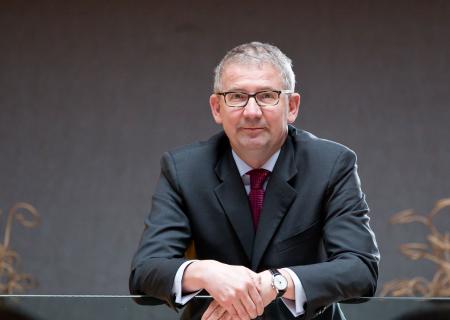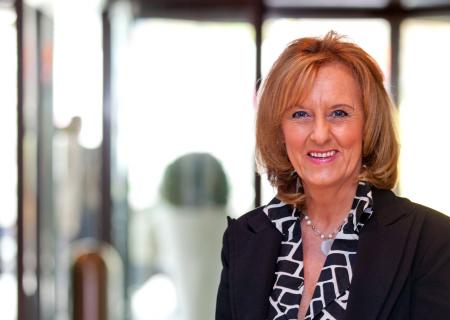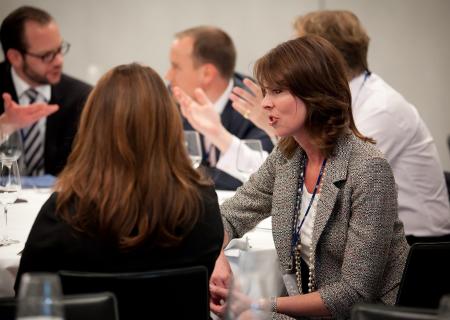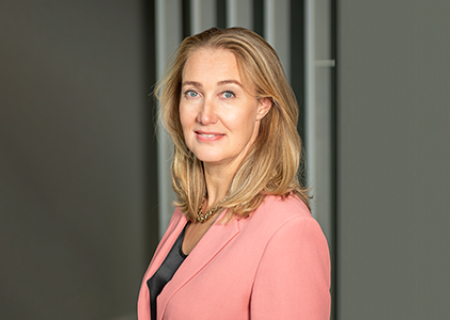A meeting of minds in Brussels
INREV’s public affairs team inside the European Parliament
The European Parliament’s Committee on Economic and Monetary Affairs (ECON) published its report on long-term financing of the European Economy last month. Two weeks ahead of publication, key representatives from the European real estate industry met the report’s author
Tuesday 11 February will go down as a key date in INREV’s public affairs calendar. It was the first time the European real estate industry had been inside the European Parliament.
Spearheaded by INREV, the event enjoyed the support of eleven other members of the European Real Estate Forum (EREF), which included representation from international, European and national associations. “The meeting was a solid first step toward more direct interaction with European policy makers - a valuable chance for them to hear the real estate story first hand,” said Jeff Rupp, INREV Director of Public Affairs.
Dr Wolf Klinz, MEP and Rapporteur for the Committee on Economic and Monetary Affairs (ECON), hosted the breakfast event and welcomed the opportunity to hear the collective views of the industry. He was joined by fellow European Parliament Members, Sean Kelly (Ireland), and Michael Theurer (Germany), plus representatives from the European Commission.
Patrick Kanters, Managing Director Global Real Estate & Infrastructure for APG Asset Management and Chairman of the INREV Management Board, and Hauke Brede, Chief Risk Officer for Allianz Real Estate and Chair of the Public Affairs Committee, spoke about institutional investors’ rationale for investing in real estate. The benefits, they said, were principally twofold: the provision of long-term stable income to match liabilities, providing millions of working people with pensions and savings, and diversification for their investment portfolios.
Independent economic researcher, Dr Brenna O’Roarty of RHL Strategic Solutions, completed the broad overview of what real estate has to offer. She highlighted the scale of the industry’s contribution to a sustainable economy at a local, national and European level.
One of the key points to explain was that real estate is not plagued by cyclicality - a question over which the politicians had expressed concern. Dr Klinz, for example, was very keen to know how real estate investments and strategies could manage cycles more effectively to avoid the shortening of timescales and the widening gulfs between market peaks and troughs. He also wanted to hear how the industry could help to coordinate the supply of assets and avoid over-building and volatility.
“Dr Klinz’s line of questioning went beyond the obvious. He was clearly engaged in the discussion, which is a very positive sign for the industry,” said Matthias Thomas, INREV’s CEO, after the meeting.
Responding to Dr Klinz’s key points, Kanters, Brede and O’Roarty explained how leverage had been a key factor in excessive risk-taking, pre-financial crisis. But they pointed out that the real estate industry had been quick to undertake significant de-leveraging. The evidence demonstrated that anything above 30-40% leverage increased risk disproportionately in relation to returns. Acknowledging the positive impact of Basel III, the three speakers also concluded that de-leveraging had already proved an effective form of industry self-regulation.
Dr Klinz was also keen to understand the capacity and desire of institutional investors to support infrastructure investment. Brede and Kanters explained that there are already sufficient real estate and infrastructure investment vehicles to meet their needs. Although the proposed European Long-Term Investment Funds might help small and corporate pension funds access long-term investments, they would likely attract few large institutional investors.
Acknowledging that investment capital flows are global, Dr Klinz accepted the challenge that more needed to be done to ensure Europe is a welcoming environment for international investors. Kanters cited the example of the Netherlands where plans are afoot to better coordinate infrastructure initiatives among local authorities. He added that there was a need for smart decision making to encourage more efficient public/private partnerships.
Thomas summarised the consensus view: “We had one hour and 15 minutes of collaborative conversation in the European Parliament. It wasn’t about taking a position on specific points of regulation or lobbying. We wanted to help policy makers realise that real estate should be viewed as an investment rather than a cost. I think we successfully hit our target.”








